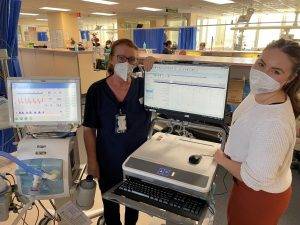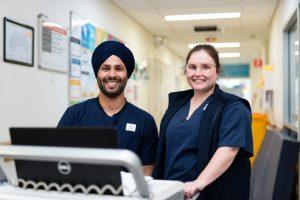Central Adelaide researchers looking into the science and physiology underlying heart attacks and strokes, and a project aimed at maximising the benefits of kidney transplantation, have received National Health and Medical Research Council (NHMRC) funding for their vital work.
Investigating the main cause of heart attack and stroke
Associate Professor Peter Psaltis has been awarded $728,000 and will lead a team of researchers investigating atherosclerosis, the build-up of fatty plaques inside the body’s arteries, which is the main underlying cause of heart attack and stroke.
“As the main cause of heart attack and stroke, atherosclerosis is the leading cause of death worldwide and we need to better understand how it occurs to improve the ways we treat it,” said Associate Professor Psaltis, an academic cardiologist and vascular biologist.
“Although most atherosclerosis research focuses on the development of plaque itself, an important but under-recognised aspect of the disease are changes that take place in the outer layer of the artery wall.
“This project will study these stem cells to determine how they cause plaques to form, so that we can develop new therapies that target these stem cells to more effectively treat atherosclerosis.”
His team discovered a new population of stem cells in the outer layer of arteries which appear to play a role in the growth of plaques and evenutal artery blockages.
Decision making in kidney transplantation
Consultant nephrologist at the Royal Adelaide Hospital, Dr Georgina Irish, has been awarded an NHMRC Postgraduate Scholarship to support her PhD project Decision making in kidney transplantation.
“Kidney transplantation is a life-saving treatment for most people with end-stage kidney disease,” Dr Irish said.
“For some people, however, it causes more harm than good.
“We will clarify which individuals will benefit from transplantation by personalising information on predicting potential outcomes after transplantation. The outcome will be the development of a decision tool to help doctors and patients make these challenging and irreversible decisions.”
Antimicrobial resistant infections
Dr Katharina Richter, based at the Basil Hetzel Institute, and her team have been awarded $999,581 for her work improving clinical outcomes of antimicrobial resistant infections with a drug-free intervention.
*Pictured are Dr Katharina Richter, Dr Georgina Irish and A/Prof Peter Psaltis.



